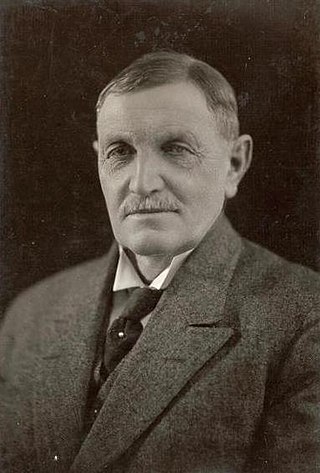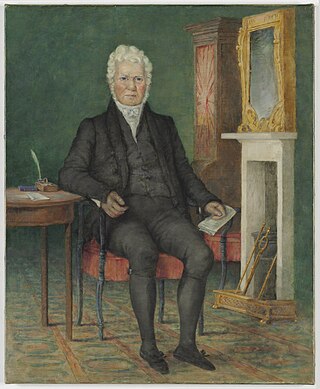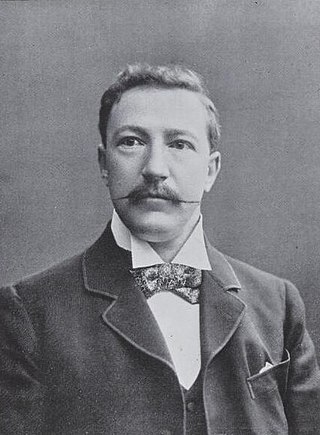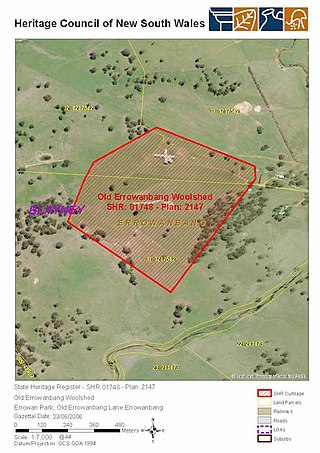Related Research Articles

John Joseph Cahill, also known as Joe Cahill or J. J. Cahill, was a long-serving New South Wales politician, railway worker, trade unionist and Labor Party Premier of New South Wales from 1952 to his death in 1959. Born the son of Irish migrants in Redfern, New South Wales, Cahill worked for the New South Wales Government Railways from the age of 16 before joining the Australian Labor Party. Being a prominent unionist organiser, including being dismissed for his role in the 1917 general strike, Cahill was eventually elected to the Parliament of New South Wales for St George in 1925.

The New South Wales Government Railways (NSWGR) was the agency of the Government of New South Wales that administered rail transport in New South Wales, Australia, between 1855 and 1932.

Carcoar is a small town in the Central West region of New South Wales, Australia, in Blayney Shire. In 2016, the town had a population of 200 people. It is situated just off the Mid-Western Highway 258 km west of Sydney and 52 km south-west of Bathurst and is 720 m above sea level. It is located in a small green valley, with the township and buildings on both banks of the Belubula River. It is the third oldest settlement west of the Blue Mountains. Carcoar is a Gundungurra word meaning either 'frog' or 'kookaburra'. Nearby towns are Blayney, Millthorpe, Mandurama, Neville, Lyndhurst and Barry

William Forster was a pastoral squatter, colonial British politician, Premier of New South Wales from 27 October 1859 to 9 March 1860, and poet.

Bathurst (County) was an electoral district of the Legislative Assembly in the Australian state of New South Wales, named after Bathurst County and including the rural part of the county. The electorate did not include the town of Bathurst which was included in Western Boroughs, until Bathurst was created in 1859. Bathurst (County) was replaced by Carcoar, East Macquarie and West Macquarie in 1859.

William Bede Dalley was an Australian politician and barrister and the first Australian appointed to the Privy Council of the United Kingdom. He was a leading lay representative and champion of the Catholic community and was known for his parliamentary and legal eloquence.

William Henry Traill was an Australian journalist and politician, commonly referred to as W. H. Traill. He was an early editor and for a period the principal proprietor of The Bulletin in Sydney.

Sir Samuel McCaughey was an Irish-born pastoralist, politician and philanthropist in Australia.

William Wilson Killen was an Australian politician.

Robert Campbell (1769–1846) was a merchant and politician in Sydney. He was a member of the first New South Wales Legislative Council. Campbell, a suburb of Canberra was named in his honour.
Charles Edward Pilcher was an Australian barrister and member of the Parliament of New South Wales.

Thomas Icely was an early colonial New South Wales landholder and stockbreeder. As a nominee Legislative Councillor from 1843, to 1853, and from 1855, until the establishment of responsible government in 1856, he was a consistent supporter of the Governor. He served a second term as a life appointee to the Legislative Council from 1864.

Sir Hugh Robert Denison KBE, originally Hugh Robert Dixson was a businessman, parliamentarian and philanthropist in South Australia and later New South Wales. He was a member of the South Australian House of Assembly from 1901 to 1905, representing North Adelaide (1901-1902) and Adelaide (1902-1905). Outside of politics, he was involved in his family's tobacco business, a forerunner of the British-Australasian Tobacco Company, was involved with a number of newspapers, and founded the Macquarie Broadcasting Services Pty Ltd radio network. He changed his surname by deed poll in 1907 to avoid confusion with his uncle Sir Hugh Dixson.

Ezekiel Alexander Baker was a member of the New South Wales Legislative Assembly.
George Allen Mansfield was a prominent Australian architect of the nineteenth century who designed many iconic buildings in Sydney, New South Wales, Australia.

John Crozier was a pastoralist of New South Wales and Victoria and a South Australian politician.
Edward Quin was a noted pastoralist in the north-west of New South Wales, Australia, who represented Wentworth in the New South Wales Legislative Assembly

Old Errowanbang Woolshed is a heritage-listed shearing shed at Errowan Park, Old Errowanbang Lane, Errowanbang, Blayney Shire, New South Wales, Australia. It was designed by Watt and built in 1886. It is also known as Errowanbang Woolshed. It was added to the New South Wales State Heritage Register on 23 June 2006.
A by-election was held for the New South Wales Legislative Assembly electorate of Carcoar on 14 June 1876 because of the resignation of Solomon Meyer. His company TF Meyer and Co had become insolvent.
A by-election was held for the New South Wales Legislative Assembly electorate of Carcoar on 21 November 1884 because of the death of Andrew Lynch.
References
- ↑ "Grazier and Dramatist". The Sydney Morning Herald . No. 24, 506. New South Wales, Australia. 22 July 1916. p. 9. Retrieved 29 January 2018– via National Library of Australia.
- ↑ Rickard, John. Australian Dictionary of Biography. National Centre of Biography, Australian National University – via Australian Dictionary of Biography.
- 1 2 3 John Rickard (1972). Australian Dictionary of Biography: Hopkins, Francis Rawdon Chesney (1849–1916). National Centre of Biography, Australian National University. Retrieved 13 March 2020.
- ↑ "Late Mr F. R. C. Hopkins". The Sydney Morning Herald . New South Wales, Australia. 22 July 1916. p. 9. Retrieved 14 March 2020– via Trove.
- ↑ "A Trip Down the Murray". The Sydney Mail and New South Wales Advertiser . New South Wales, Australia. 14 July 1877. p. 39. Retrieved 14 March 2020– via Trove.
- 1 2 3 "Lady Letter". Melbourne Punch . Victoria, Australia. 23 July 1896. p. 13. Retrieved 14 March 2020– via Trove.
- 1 2 3 4 "Death of Mr. F. R. C. Hopkins". The Leader (Orange, NSW) . New South Wales, Australia. 24 July 1916. p. 5. Retrieved 12 March 2020– via Trove.
- ↑ "New Publications". The Farmer and Settler . New South Wales, Australia. 31 December 1909. p. 5. Retrieved 13 March 2020– via Trove.
- ↑ "Mr Dampier". The Riverine Herald . New South Wales, Australia. 29 March 1877. p. 2. Retrieved 14 March 2020– via Trove.
- ↑ "Reaping the whirlwind". nla.gov.au.
- ↑ "Family Notices". The Sydney Morning Herald . New South Wales, Australia. 14 April 1943. p. 12. Retrieved 14 March 2020– via Trove.
- ↑ "Our Book Column". The Sydney Stock and Station Journal . New South Wales, Australia. 4 June 1907. p. 3. Retrieved 14 March 2020– via Trove. one of the more positive reviews